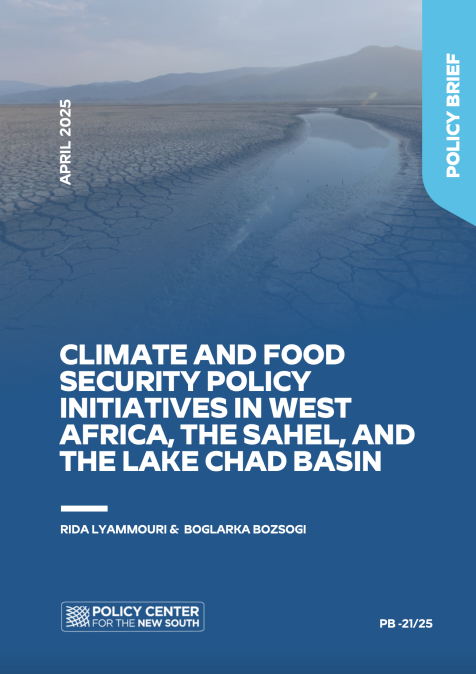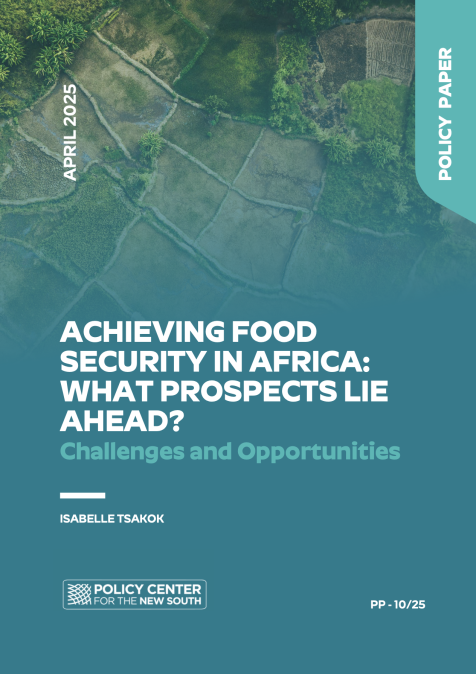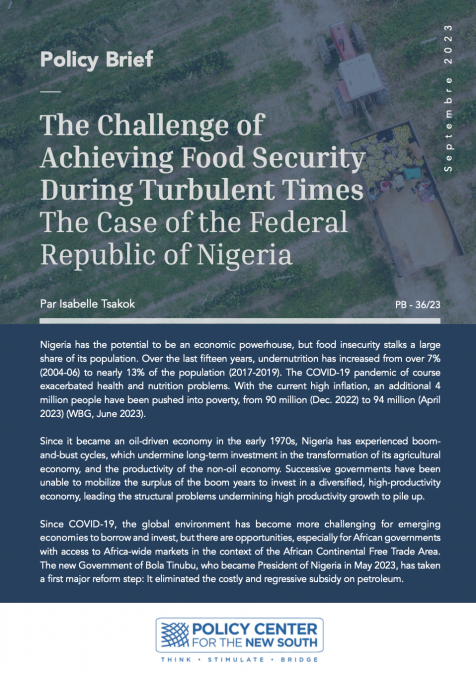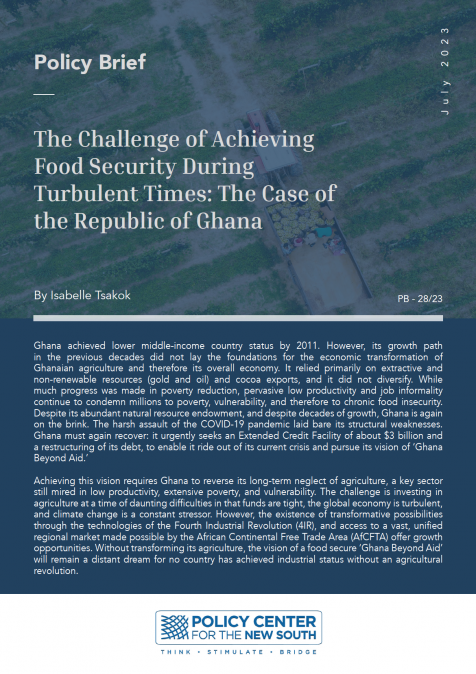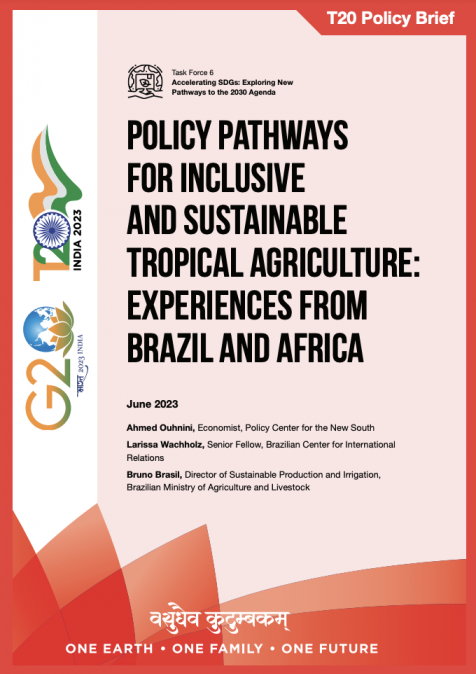RELATED CONTENT
-
AuthorsBoglarka BozsogiApril 21, 2025Fluctuating precipitation and extreme weather are long-standing features of life in West Africa, the Sahel, and the Lake Chad Basin. Communities across the region have historically adapted to these unique climatic conditions in diverse ways. However, the growing impact of climate change, coupled with challenges to food security and ecological resilience, has elevated these issues on the agendas of regional and international policy platforms. Despite this recognition, the region fac ...
-
AuthorsApril 2, 2025Africa has strong prospects for achieving food security within a generation— provided its leadership effectively mobilizes domestic and foreign funds, drives strategic investments, and strengthens institutions that incentivize smallholders and other stakeholders to invest in resilient, high-productivity agriculture amid accelerating climate change. This is undoubtedly a tall order. However, the time is now to seize the golden opportunity of regional market integration through the A ...
-
AuthorsJuly 31, 2024Millions are severely malnourished in a world where there is enough for all. Hunger and malnutrition stalk more than 3.1 billion people. Yet, widespread hunger in all its forms is a problem which has been largely solved at the macro level in today’s high-income, industrialized countries. Their “escape from hunger and premature death” is a fairly recent phenomenon. It began around 300 years ago, continued for most of the 20th century and is still ongoing today. The problems faced by ...
-
AuthorsApril 5, 2024National and regional visions for the future of water and food security have been at the forefront of sustainability talks. Nevertheless, the role of soil in water and food security and carbon management needs to be highlighted and integrated into these discussions and visions. The dynamic characterization of soil as a medium that accounts for the long-term impact of the agro-environmental conditions is of utmost importance to sustainability of these resources and to sustainable dev ...
-
AuthorsSeptember 12, 2023Nigeria has the potential to be an economic powerhouse, but food insecurity stalks a large share of its population. Over the last fifteen years, undernutrition has increased from over 7% (2004-06) to nearly 13% of the population (2017-2019). The COVID-19 pandemic of course exacerbated health and nutrition problems. With the current high inflation, an additional 4 million people have been pushed into poverty, from 90 million (Dec. 2022) to 94 million (April 2023) (WBG, June 2023). S ...
-
AuthorsJuly 11, 2023Ghana achieved lower middle-income country status by 2011. However, its growth path in the previous decades did not lay the foundations for the economic transformation of Ghanaian agriculture and therefore its overall economy. It relied primarily on extractive and non-renewable resources (gold and oil) and cocoa exports, and it did not diversify. While much progress was made in poverty reduction, pervasive low productivity and job informality continue to condemn millions to poverty, ...
-
AuthorsJune 20, 2023This policy brief was originally published on T20 India website Supportive policies for tropical agriculture have helped millions of small-scale farmers in Brazil step out of poverty by improving government capacity to design legal frameworks to strengthen agricultural production and family farming. Scientific and technological developments have enabled small-scale Brazilian farmers to produce food while considering local tropical conditions. In contrast, tropical agriculture s ...
-
AuthorsMay 3, 2023For over six decades, Morocco has largely equated the achievement of food self-sufficiency (FSS) in ‘strategic’ food commodities to achieving food security. Successive governments have succeeded in guaranteeing the availability of and access to these commodities for the poor and vulnerable. In so doing, they have maintained social stability by fulfilling a basic social contract with the people. This is a major achievement, but the financial, economic, and environmental costs of this ...
-
AuthorsApril 10, 2023This policy paper examines India’s growing engagement in North Africa, focusing on five countries: Morocco, Algeria, Tunisia, Libya, and Egypt. Despite lacking a distinct regional policy for North Africa, India has amplified its bilateral engagement with these countries, underpinned by a steadfast commitment to the principle of South-South cooperation. Through its strategic moves in North Africa, India has established a powerful southern-west axis for its foreign policy that stretch ...
-

